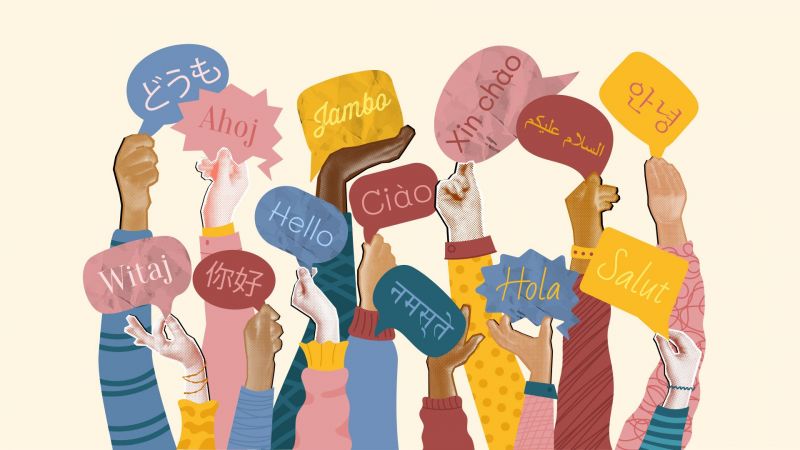What I Learned Living and Working Abroad
The Middle Kingdom teaches Matthias Spitzmuller a lesson in the speed of change

Matthias Spitzmuller has never shied away from diving into the cultural deep end. He was raised in Germany, schooled at Swiss and American universities, and was a professor in Singapore. Since 2014, Spitzmuller has been teaching and researching in organizational behaviour at Smith School of Business in Kingston, Ontario. But, in 2024, he jumped at the opportunity to temporarily relocate to Shanghai to teach at the China Europe International Business School.
The experience was transformative on both professional and personal levels. It was also an apt reminder of the importance of cultural intelligence. Being able to understanding the context of a specific culture—whether it's the importance of hierarchy, negotiation styles or attitudes toward time—can significantly influence the success of professional interactions. While studying cultural intelligence can be valuable, nothing can replace the insights gained through lived experience.
Spitzmuller learned this first-hand while working in China. His ability to reach across a cultural chasm was tested as he sought to earn acceptance from skeptical Chinese students who have little patience for foreigners with no understanding of their country. “Knowing China is extremely difficult,” he says, “you have to be willing to let go of your Western ideas, to have humility and see China as a society we can learn from. Once you accept that, then it becomes an incredibly fascinating country.”
Now back in Canada, Spitzmuller spoke with Smith Business Insight senior editor Alan Morantz about his impressions and the lessons he learned living and working in China.
In preparing for this conversation, I asked the Gemini AI chatbot what it’s like to live in China. Gemini told me that one would learn about the importance of community, that Chinese culture emphasized collectivism, that life in China can be challenging so one would need to be adaptable and patient, and that communication goes beyond words — that body language, tone and context are all very important. How well does that line up with your experience?
I think well. I’d add that it’s really a journey in resilience. There are two very discrepant experiences happening at the same time. The one is you are absolutely awed by the size, the colours of Shanghai. I’ve never seen anything like this, and I’ve lived in Singapore. But the second thing is you are absolutely hopeless because you don’t know how to navigate daily life.
Everything takes place through your cell phone and apps. You use apps like Alipay – sometimes without access to a direct translation – to arrange taxis, to make financial transactions, to buy movie tickets, to order shopping to your door, all of that. But at the beginning, not only do you not know how to navigate it, you’re not even authorized to use it. Once I had a phone and got Alipay, I couldn’t use it as it took months to open a local bank account and get a local credit card that could be connected to Alipay. You feel like someone who has been released into this ultra-modern world, but you don’t know how to navigate its daily functions.
Did you have to make any adjustments to your teaching style?
I went there thinking that I was an award-winning professor and that students were going to love what I had to offer. The first course that I taught, that was not the case at all. In the end, I had good teaching evaluations, but there were students who complained, who said that I didn’t understand China and that the material wasn’t applied or analytical enough. And I realized that Chinese students are looking for very different content than their Western counterparts.
In the Western world, the ideal of teaching is the Socratic method. We don’t teach people the answers but how to ask questions. In China, the expectation is — and this goes back to how Confucius described the role of a teacher — you tell them exactly what to do. It’s much more applied and there’s much less tolerance for ambiguity.
In terms of my own personal transformation over the year, I ended up a very different instructor than I was at the beginning.

Does that mean you had less interaction with students?
No, the interaction was different. So, if I were to ask very open-ended questions, it would go flat very fast. Questions had to be more leading, more precise as opposed to, What do we think about this? The students needed to feel safe to speak up and feel that they were moving in the right direction with their answer.
One of the reasons why the teaching experience was so phenomenal was because of the collective norms students adhere to. These students in the executive MBA (the Financial Times top-ranked EMBA in the world), their average salary is over US$600,000. They’re extremely busy people. But they commit to sitting in a classroom for four consecutive days from nine to five, and not a single one of them opened their laptop. Not once. That’s the power of collective norms.
I also realized that if you as an outsider are able to activate rituals that they’re used to, then everything changes. When I taught the MBA program in Beijing, I started by saying “good morning” in Chinese – zaoshang hao. What they’re used to doing when a professor says that is to reply, zaoshang hao and then clap three times. Then the lecture begins. That simple ritual made them feel comfortable. These norms gave them a collective experience. It’s like they thought, This guy is an outsider from the Western world, but I can accept him as my professor.
What was the biggest hurdle you had to face?
The biggest one is that I was quite naive in terms of how I saw my role as a professor there. In China, the current president says there is one arc going all the way from Mao to himself. So everything that’s happening in Chinese society is basically consistent with the Cultural Revolution, with the opening of China through Deng Xiaoping, everything is one arc. It’s not broken like, say, with Russia where there are these clear interruptions that completely challenged the existence of the state. China emphasizes continuity. I underestimated the power of that idea — that you don’t just operate in a business school. The business school is part of wider society, and organizations and society interact in delicate ways.
The former Soviet Union looms large in the Chinese imagination, does it not?
No country has studied the downfall of the Soviet Union as much as China. What China learned were two main principles. The first one is the Soviet Union broke down because it had lost its satellite states. They were destabilized from the outside, from Poland, Hungary, German Democratic Republic, the Baltic states. So China worked against that by having very strong economic ties with its neighbours and around the world, with the Belt and Road Initiative, for example.
The second thing that China learned is that the Soviet Union lacked internal dynamism. It was just bureaucratic and fell apart. So China, much more than any Western country that I know, has a tremendous amount of competition among companies and provinces. It’s capitalism in its rawest form. There’s no protection of intellectual property rights, so that means if you’re good at something, you have to be a few steps ahead of your competition because you can’t just protect what you know. The sources of competitive advantage are much more short-lived, and that leads to an incredibly dynamic society and incredible entrepreneurial activity.
I imagine your re-entry to Canada must have been a shock to the system as well.
When you go from Shanghai to Europe or Canada, it feels like you’re traveling back 25 years in time. I don’t think we understand how far ahead they are from us in many ways. We are incredibly naive when we think about China. We still see it as a cheap manufacturer of goods and people don’t understand the pace at which the world is developing in Asia.
Of course, there is a caveat. There are big winners and losers in China. Sometimes people find themselves on the losing side and don’t understand why. Or there’s nothing they can do about it because individual rights mean nothing if the collective advances. And if the collective advances, that oftentimes means there are powerful people with their interests vested there as well.
What was your best day in Shanghai?
One day comes to my mind. We were walking along the Huangpu River that flows through the middle of the city. A lot of high rises and colours everywhere. We came upon a Chinese musician who had his own sound system, played beautiful music and sang with a very strong voice. It contained some traditional Chinese elements, but also had a modern touch to it. The music sounded very Chinese. And for me, it combined the history of Shanghai with its modern aspects. I felt grateful that I could be at a place where a civilization had developed for thousands of years, where a lot of wisdom has led to incredible development. I had the feeling of being a little human in this big world. That was a moment I’ll always remember.